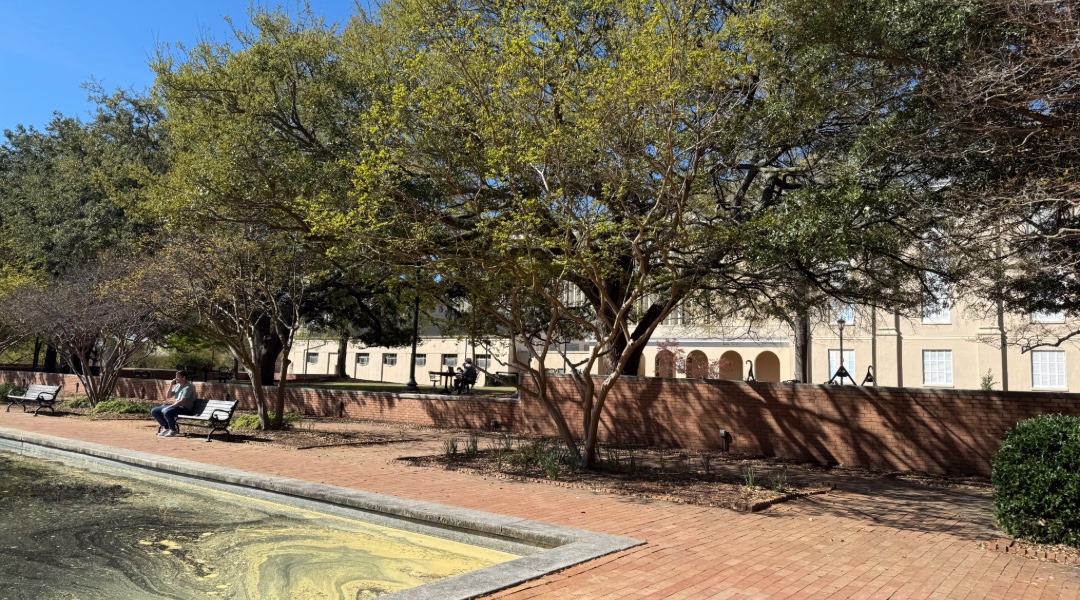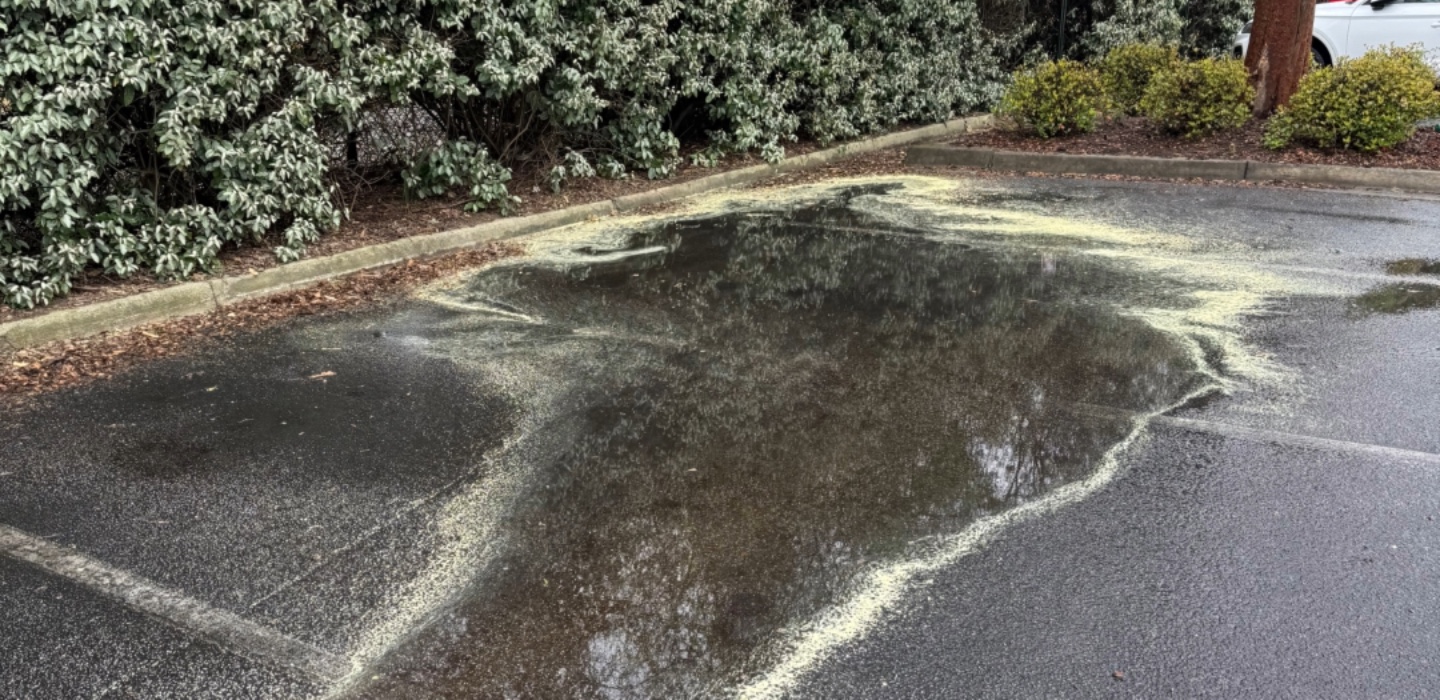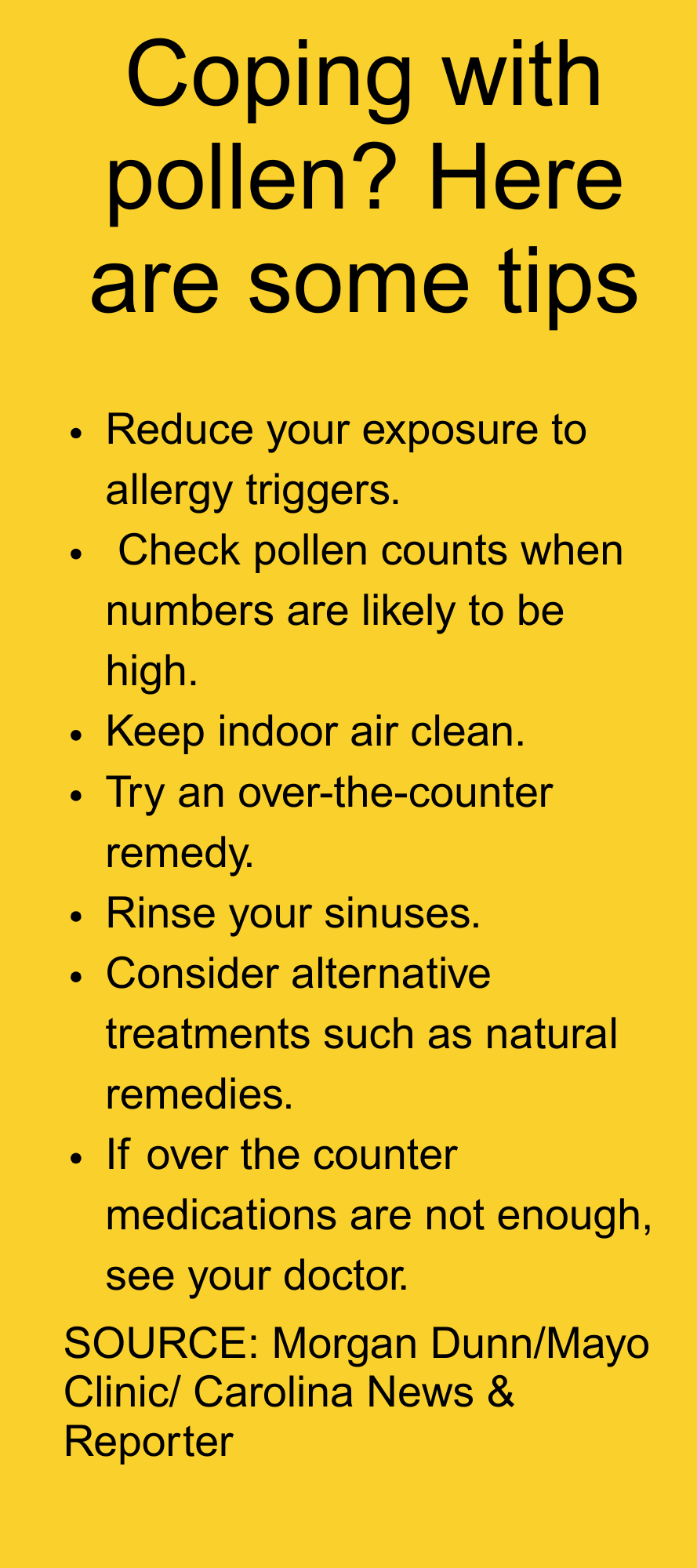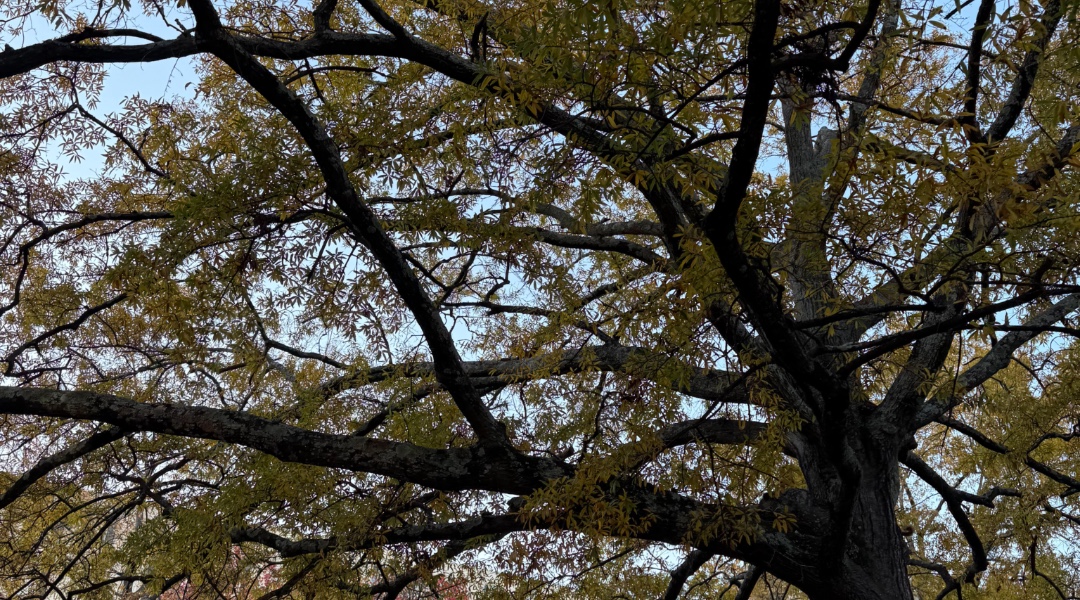Trees outside of Thomas Cooper Library at the University of South Carolina have thrown off pollen that floats in the fountain. (Photos by Morgan Dunn/Carolina News & Reporter)
The warm weather in South Carolina might feel like a dream come true.
But for those with pollen allergies, it can feel like a nightmare.
From the end of February to early May, spring pollination is prevalent in South Carolina, making those who are sensitive miserable. For many, the warm weather brings itchy eyes, runny noses and constant coughing and sneezing.
Will Bar, 21, never had an issue with pollen until he moved to Hopkins, just southeast of Columbia, at the age of 7.
“When I first moved to Hopkins, my eyes swelled up so bad that I could not see, and I had to be taken to the ER,” Bar said.
Most people with the allergy are allergic to tree pollen, said Hector Rodriguez, a medical doctor of allergy and immunology.
That pollen swarms through the air, allowing everyone to breathe it in.
For those not allergic, breathing in the pollen is no problem. But those who are sensitive have no choice but to take precautions to protect themselves since inhaling pollen is unavoidable.
Medicine – over the counter or prescription – is a common way people choose to treat their symptoms.
Columbia residents tend to take an above-average amount of medicine to ease their symptoms, according to a 2025 report by the Asthma & Allergy Foundation of America.
A pollen allergy isn’t too severe in most cases but can cause many people to have irritating symptoms, Rodriguez said.
“You know, if you can’t breathe through your nose, your quality of life scores can go down,” Rodriguez said.
But Rebecca West, 20, experiences such severe allergic reactions that she has to make extreme lifestyle changes during this time of year.
“I don’t go outside unless I absolutely have to, and I often skip class because I am just too sick to sit in a classroom,” West said.
She said her symptoms are unbearable, and medications don’t help her much.
For others, like Mary Lee Lockhart, 19, symptoms can be less severe but can cause major problems every day.
Lockhart grew up allergic to pollen. When she was young, she would get sick often. Eventually, her parents realized they had mistaken her allergies for common colds.
Her symptoms now consist of constant sneezing, a runny nose, itchy red eyes and sometimes even difficulty breathing.
She takes prescription cetirizine hydrochloride every morning.
“I tend to get pretty miserable during the day if I forget to take my pill,” she said.
Rodriguez recommends that people with allergies take medication and even consider getting allergy shots to avoid making any extreme lifestyle changes.
Allergy shots train the body’s immune system to have less severe reactions when exposed to pollen, Rodriguez said.
The good news is that the pollen reactions are temporary, and people will be able to enjoy South Carolina’s warm weather once summer arrives.






